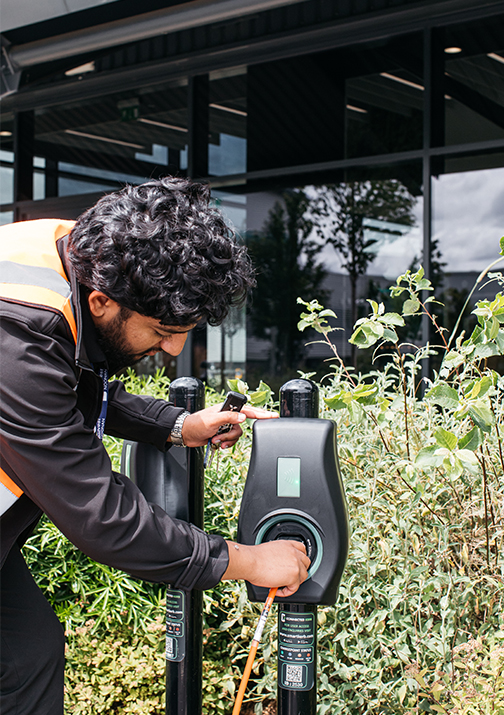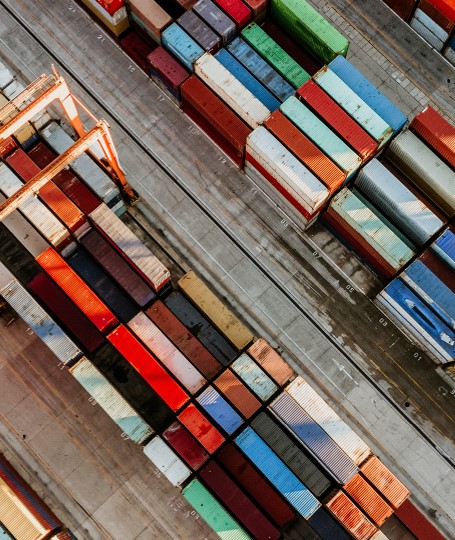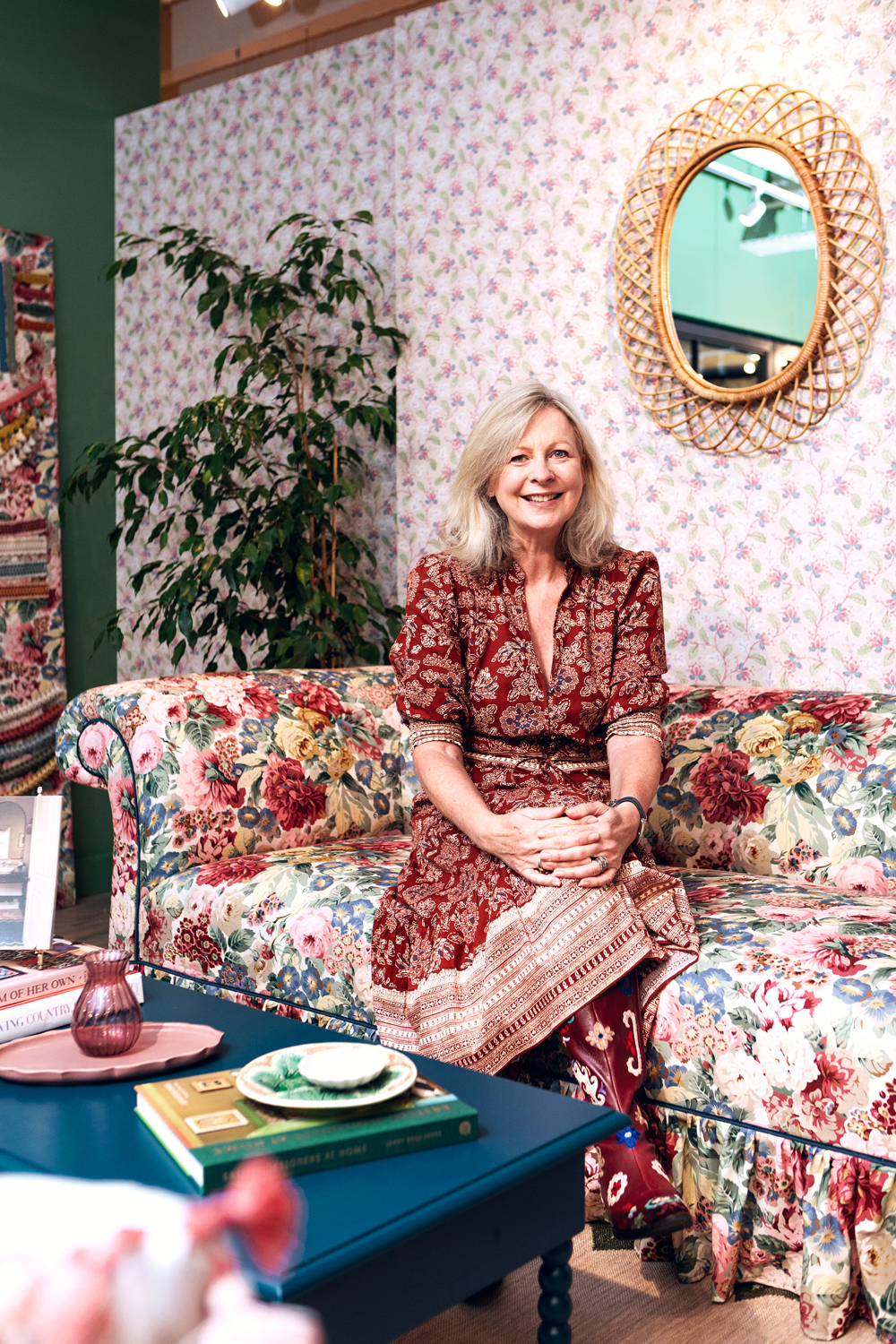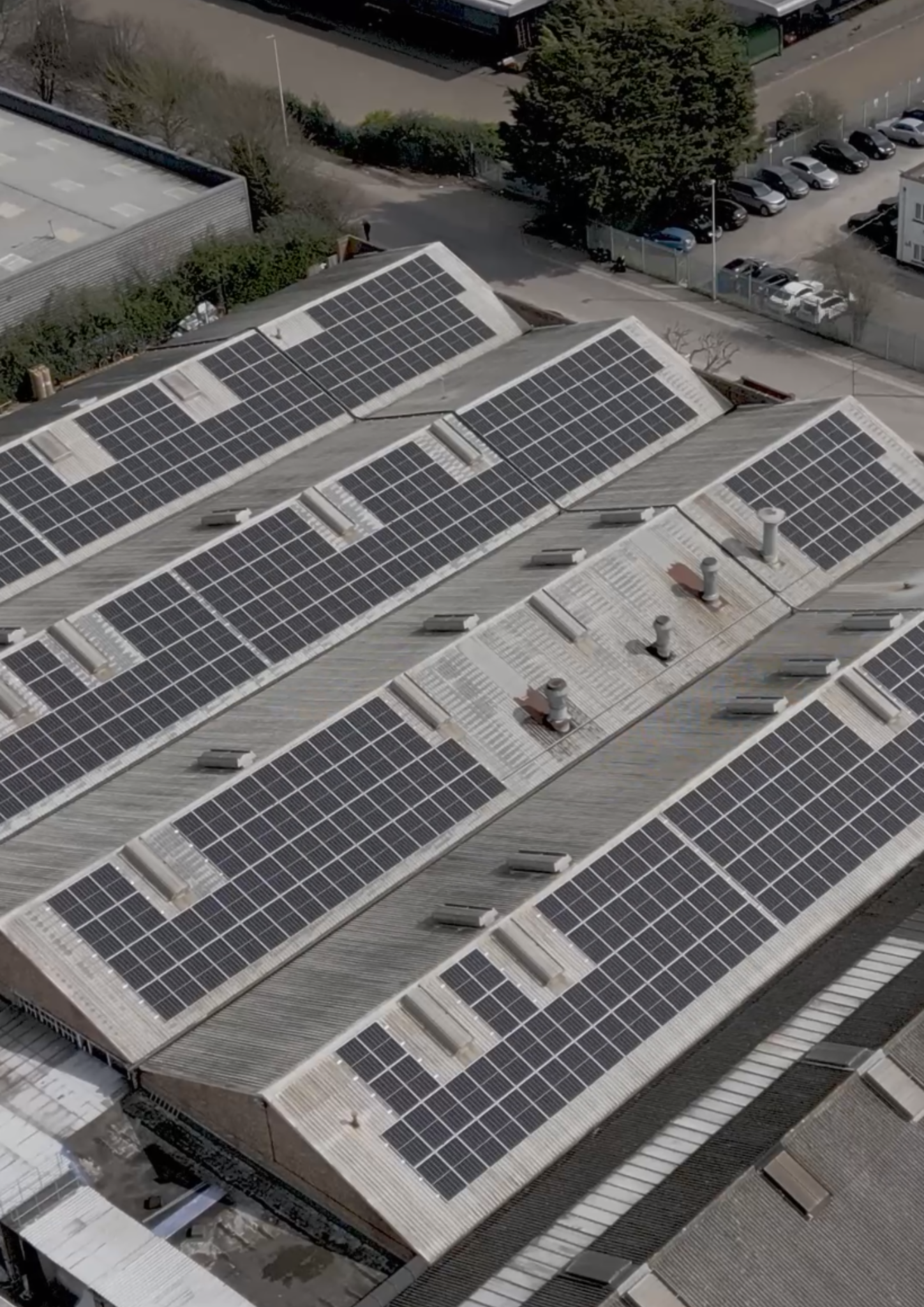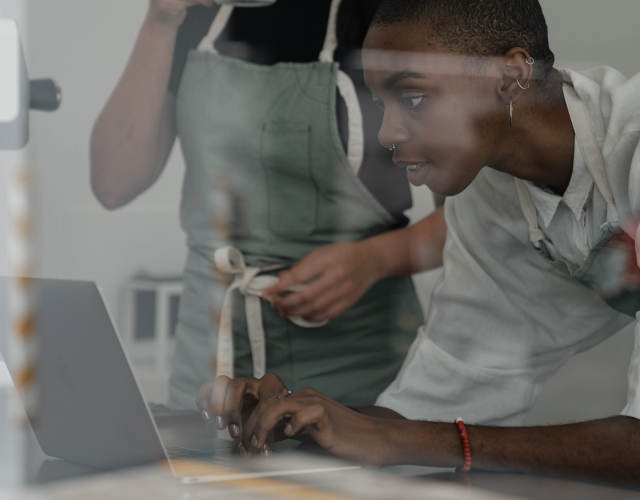To celebrate International Women’s Day on 8 March, we interviewed empowered women from the Planet Mark community, who have played an exceptional role in advancing the United Nations 2030 agenda for sustainable development. These women reflect on progress made, challenges faced and hopes for an inclusive and equitable world that works for all and sustains our shared environment for future generations.

Fran Beer, Founder, The Beeswax Wrap Co.
Tell us a little about your background and your current role in sustainability?
Before founding The Beeswax Wrap Co., I had worked for a lot of big corporate marketing companies, with huge budgets and little regard for people and the planet. While training to become an acupuncturist, I learnt a lot about how the environment and the things we touch and consume impact and affect our bodies, in particular plastics. This spurred my passion for a more natural lifestyle; less plastic, less chemicals and more sustainable choices when it comes to the products I buy, the way I live and the business I run.
From day one, it was important to me that everything about our little wonder product and the business was as ‘good’ as it could be and that meant trying to find the best materials from the local environment, working in and with our local community and trying to ensure that our company did more good than harm. Fast forward to today, and I’m still leading the company and working hard to make the most sustainable and planet-friendly choices in all parts of the business.
How have you embedded sustainability into organisational practices?
As a small business who create their own product, we have the power to control what goes into our wraps and the flexibility to adapt our products, materials and procedures to be better and do better. We’re always looking for new materials, suppliers and procedures that work better for our planet. We work hard to encourage everyone in our company to have the same mindset, whether it’s sharing and recommending ways to be more sustainable in our home lives or recommending tools and products to improve our businesses sustainability.
What are some successes in your career that would inspire others?
I think that we are proof that you can build a business with sustainability at its core; you don’t need to be a big business with big budgets to make it work. We have been approached by some big high street companies that many would have said we were mad to turn down and it was extremely scary saying no, but we knew that it was the right decision to make, we want to work with companies who fit with our values and not be dazzled by the bright lights.
When faced with challenges, how do you address them and what keeps your passion alive?
We’re constantly facing challenges and obstacles, its part and parcel of running a small business and building something a little different. I have a brilliant team who are all so passionate about our mission, we work extremely closely and work together to figure things out. We’re firm believers that challenges are there to help us learn and teach us something and once they’ve been faced it definitely gives us a renewed sense of achievement and drive towards whatever is next!
Why do you think inclusivity in sustainability is important?
I think it’s integral if we are to make a true movement towards sustainability and looking after our planet. True sustainability can’t be achieved without inclusivity and it’s the responsibility of companies like ours to break down barriers that prevent people from being able to make sustainable and planet-friendly choices.
What advice would you give to women who want to pursue a career in sustainability?
Don’t let anything hold you back! There will always be people and systems that try to hold you back, or tell you can’t do it, but why can’t you? Do your research, collaborate with a brilliant team of people and don’t compromise!
Any interesting sustainability readings/sources you would like to share?
We’re currently making plans for all of our team to go through the carbon literacy programme run by the Carbon Literacy Project. It’s a free and nationally accessible project for individuals and organisations, teaching them about sustainability and carbon footprint and how they can be a positive force for change when armed with all the facts. The idea is that someone takes part in the programme and then becomes the messenger and passes the programme onto the next person/organisation and so on. We hope that one day soon we’ll be able to work with all of our customers, suppliers, collaborators and supply chain to learn, educate and share this with them.
Globally, Slow Factory are a brilliant resource for anyone looking to learn more about environmental justice and sustainability. They cover a multitude of topics in their educational lectures, all of which are free to access for Black, Brown, Indigenous and minority ethnic communities.

Lucy Abraham, Founder, The Collective Agency
Tell us a little about your background and your current role in sustainability.
I grew up in Australia which is very outdoors and focused on the natural world. I was always intrigued by the miracle that is our planet – how perfect it is. How by chance we are exactly the right distance from the sun to warm us, how we have the right amount of water for us to survive, how being knocked on our side axis gave us seasons. Seeing what we are doing to these wonders makes me feel sad. We are not appreciating this gift.
Working in the commercial interiors industry I have seen first-hand the waste and effects of industry decisions. More often than not, furniture and products are not given a second life and after five years end up in landfill. Seeing this drove me to do more and have a greater impact on protecting our planet. So, in 2014 I founded The Collective Agency to offer unique, beautiful and sustainable solutions to the commercial interiors market. Sustainability was my driving force in setting up my business. I wanted to make a difference in our industry and I have always tried to make the best sustainable decisions.
How have and will you continue to embed sustainability into organisational practices?
Within the organisation we encourage and implement environmentally friendly systems. We introduced recycling bins including a food recycling system and ensure everything we specify or purchase is sustainably sourced, even down to the office snacks! Everything we send out, from postage to product wrapping material and tape is paper based. To control the vast numbers of samples we send out, we introduced a free post-back recycling service for all samples so that they can be reused and during our manufacturing processes we always aim to reduce waste even if there is an additional charge to us. Finally, we are always open to partner with likeminded initiatives that affect environmental change and are delighted to be part of the Planet Mark community.
Who inspires you?
I am inspired by people and companies that are honest and self-teaching. People are not automatically taught how to make sustainable decisions; this is information that has to be self-taught and searched for. This takes commitment and energy. There are amazing organisations that are dedicated to making a difference. Energy company Bulb are inspiring and it’s incredible how they are shaking up the energy world and putting the planet first. Triodos are doing some great work in banking and in the commercial interiors sector, Dodds & Shute are champions of sustainability. It is organisations such as these and their founders who want to make a difference, that inspire me.
When faced with challenges, how do you address them and what keeps your vision alive?
I constantly strive to notice what we in our business can affect to make a difference environmentally. What is within our sphere of influence. On one of the first visits to site I noticed our product and many other products, were being covered in Correx plastic sheet for protection during the installation phase. This is made from low-cost virgin plastic which is used for a month then thrown into landfill. We very swiftly sourced an alternate protective material and now all our product arrives on site wrapped in a paper based corrugated paper which is protective and recyclable. Being able to make contributions – be they large of small, keeps my vision alive.
Why do you think inclusivity in sustainability is important?
It is critical that sustainability is inclusive. It’s a global topic that affects the entire planet and every person on it. We are one planet and one team and sustainability is only truly effective if we work as a team. But every team member needs to be armed with knowledge for them to be fully on board. They need to be educated in the sustainability methods they are capable of engaging with. Therefore, the communication needs to be fully inclusive; easy to understand and accessible to everyone so they can be driven by their own desire for change.
Knowledge is key. Educate yourself. Be courageous in your passion for making change and doing things that are out of your comfort zone. Be prepared for things that might not work as there is always an element of trial and error. Take small steps as well as big ones as the small changes are as important as big ones and if you manage to inspire other people with even small steps that’s the biggest impact you can make,
Finally, go with your gut instinct. It’s usually right if you allow yourself to hear it.
Any interesting sustainability readings/sources you would like to share?
I was introduced by a colleague to the Sustainable Jungle podcast which is a great source of ideas and information from a wide breadth of industries, also goodonyou.eco is an independent evaluator of fashion manufacturing which helps me make better decisions about purchases. I truly believe that every pound you spend is a vote for what you want more off, for what you believe in, so I try to spend it wisely.

Siobhan Pereira, Senior Sustainability Consultant
Tell us a little about your background and your current role in sustainability?
I am a sustainability professional with a background in strategy and implementation in a variety of settings from consumer products to construction. A few years prior to studying for an MSc Carbon Management, I did a degree in Marketing and Commercial Law working with non-profits and corporate social responsibility departments.
My current role is about providing technical guidance to Planet Mark’s real estate customers on cutting back their embodied and operational carbon across the structure’s life cycle. Drawing on my experience of designing carbon reduction and management strategies for the built environment, I work with our developers to reduce carbon through their structures and look for ways in which to grow and develop the Planet Mark Real Estate Certification process.
Where did your passion for sustainability come from?
I have my high school History and Environment Club teacher to thank, one of the activities we did was building a solar cooker and baking in it, that changed the way I thought about energy and how we could harness the power of and live alongside nature. The use and dispose culture fascinated me as things can’t just disappear once we have used them and thrown away the packaging and so began my curiosity and passion for sustainability.
How have and will you continue to embed sustainability into organisational practices?
Embedding sustainability into organisations is the most successful way for organisations to start their sustainability journey. The approach I’ve taken is to understand the organisation and align sustainability objectives and goals with the business goals and objectives, it has to be a part of the culture of the organisation. One of the ways I’ve done this is by understanding what would empower the staff to be more engaged in sustainability, the general response was to see the benefits of the efforts they were putting into being sustainable, this led to a small kitchen garden being set up using the compost being generated on site, the herbs grown were used by the onsite catering. This helped motivate and drive forward sustainable changes.
What are some successes in your career that would inspire others? or who inspires you?
I would like to think that the diversity of industries I’ve worked in is a success – most of these are male dominated industries, manufacturing and construction, often the work has been independently executed which is daunting and empowering all in one.
I draw a lot of inspiration from women street food vendors, a lot of these women have faced more hardship in their lives than most of us could imagine. Often having to be the sole provider for their families and facing obstacles and criticism that would justify giving up, yet they persevere to keep at their trade not only to provide for their families but often to keep their culture and traditions alive. Their drive and determination leave me in awe.
Why do you think inclusivity in sustainability is important?
Inclusivity is sustainable, so yes, I do think it’s important. A lot of the time being sustainable in a personal sense can often be an elitist aspiration, along with the long-term effects of climate change possibly having a detrimental impact on the livelihood and education of women. As a society we comprise of many different types of people who have differing levels of ability whether physical or social. We all have a part to play in this and therefore need inclusive champions of sustainability.
What advice would you give to women who want to pursue a career in sustainability?
We need to sit at the table! Taking from Sheryl Sandberg’s quote, women play a huge role in how society and industry move towards a more sustainable way of being whether as individuals or businesses. The industry needs women of all backgrounds and specialisations to be part of this journey and sit at the table and influence decisions being made about our collective futures. In some cases, you might have to fight for your seat at the table and that’s fine, it should only empower you to use your voice more.

Dieuwertje Kingma, Sustainability and Compliance Manager, Oktra
Tell us a little about your background and your current role in sustainability?
I’ve got a Bachelors in Architecture and Building Service Engineering and a Masters in Environmental Design and Engineering. During my bachelor’s degree I took a course on climate change with a focus on the impact of the built environment. This course really opened my eyes to the positive role that the built environment can play towards a zero carbon future. This made me want to look further into this relationship between the built environment and climate change and work on ensuring the built environment forms part of the solution rather than the problem.
I started at Oktra as a sustainability intern and I’m now the sustainability and compliance manager for Oktra, looking after sustainable construction on a project-by-project basis and overseeing the company’s wider sustainability policies.
How have and will you continue to embed sustainability into organisational practices?
I think the most important part of embedding sustainability into any organisation is engagement. Organising events and engaging speakers, informative materials and having physical reminders in the office really helps to keep sustainability at the forefront of everyone’s mind. Working from home during the pandemic has definitely made this a lot harder as important events like green week could not happen as planned.
What challenges have you faced and how have you overcome them?
While working in sustainability it is definitely possible to feel a bit hopeless from time to time (news, national/global policies, people’s perception, fake news). Trying to focus on the success stories and following people that focus on the solution rather than dwelling on the problem really helps me to stay motivated.
What advice would you give to women who want to pursue a career in sustainability?
Sustainability is a very wide (but interesting) field to work in, so I would advise to find a topic within the sustainability agenda that really speaks to you and your interests. This can be anything from energy to construction to packaging so there will be something for everyone. Once you found that topic, I would advise to take a course in that area (either at university or a professional qualification while you work) to enhance your knowledge and create your area of expertise.
Any interesting sustainability readings/sources you would like to share?
I personally like sources that give practical information or solutions instead of fear mongering such as ‘Drawdown: The Most comprehensive plan ever proposed to reverse climate change’ is a great practical source that lists various strategies ranked in order of how many greenhouse gasses this solution can potentially remove from the atmosphere. Another great source is ‘How bad are bananas?: The carbon footprint of everything’ which can give you great insight in the carbon footprint of your own actions.


